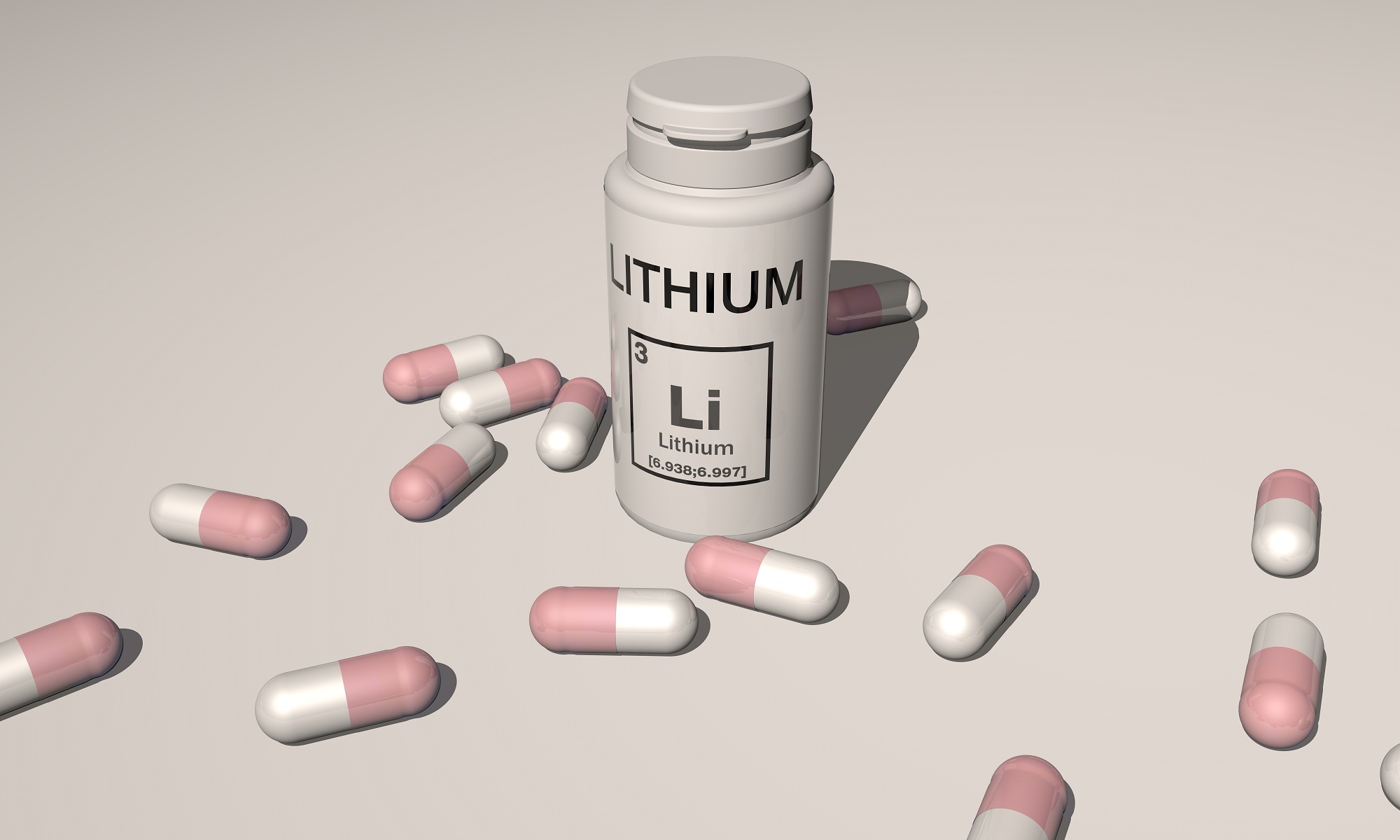Research has shown dementia to be the leading cause of death in many Western country’s elderly. This has led to many studies into the lives of the elderly to examine the relationship between factors and how they affect the development of dementia.
In a recently published retrospective study, an association was clearly found between the use of lithium and a decreased risk of developing dementia (both vascular dementia and the type caused by Alzheimer’s disease).
Details of the Study
The study was conducted between January 2005 and December 2019 and included 29,618 patients – 548 who had at any time had lithium exposure and 29,070 people who hadn’t. The demographics included:
- 11,906 (40.2%) male patients
- 9,863 (33.3%) patients who were married or in a civil partnership
- 21,029 (71.0%) were white
- The average age of the patients was 73.9 years.
The start date for the group who had never been exposed to lithium (Li-) was January 1, while the group who had experienced exposure (Li+) had theirs as the earliest recorded lithium exposure. These patients were 50 years and had yearly follow-ups until their final record, a record of dementia or death, and had to have at least one more year of follow-up in the hospital.
Observations from the Study
Every observation made was recorded to help draw an accurate result. They included the following.
- Those in the exposed group, Li+, were more likely to –
- Be married/cohabitating, or in a civil partnership
- Have diabetes, hyperlipidemia, hypertension, or central vascular diseases
- Have Bipolar Affective Disorder (BPAD) or comorbid depression and have used antipsychotic agents
- Are or used to be smokers
- 53 of the 548 patients in the exposed group (Li+) were diagnosed with dementia and its subtypes – 379 (6.8%) with Alzheimer’s disease dementia and 14 (2.6%) with vascular dementia.
- 3,256 of the 29,070 patients in the unexposed group (Li-) were diagnosed with dementia and its subtypes – 2,355 (8.1%) with Alzheimer’s disease dementia and 756 (2.6%) with vascular dementia
Conclusions from the Study
After controlling factors like smoking, use of other medication, socio-demographics, and physical or mental co-morbidities, it was found that –
- The use of lithium was found to be protective in short-term users (less than or equal to 1 year of exposure) and in long-term users (over 5 years of exposure).
- It accounted for a lower risk for dementia with adjusted hazard ratio [aHR], 0.56; 95% CI, 0.37 to 0.82; P =.0006.
- The same was recorded in the subtypes of dementia – Alzheimer’s Disease (aHR, 0.55; 95% CI, 0.37 to 0.82; P =.0033), and Vascular Dementia (aHR, 0.36; 95% CI, 0.19 to 0.69; P =.002).
Bottom Line
Researchers have identified lithium as a possible treatment for dementia and its subtypes. However, it shows positive signs with which could necessitate randomized controlled trials. However, the study has its limitations as lithium was most prescribed as a treatment for BPAD, which happens to be a risk factor for developing dementia. Also, a rather small part of the population exposed to lithium was used for the study. This calls for further research to understand better how lithium helps lower the risk of dementia.
